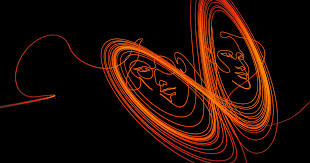Inner Conflict and Addiction to Chaos: How Early Family Experiences Can Affect Our Lives and How Psychotherapy Can Help
Many of us experience inner conflict, a struggle between different parts of ourselves that can make us feel lost, confused, or overwhelmed. For some individuals, this inner conflict can manifest in addiction to chaos, a tendency to seek out drama and turmoil in relationships and other aspects of life. This addiction to chaos can be a result of early family experiences that have created patterns of behavior and beliefs that continue into adulthood. However, psychotherapy can help individuals identify and understand these patterns, leading to healing and improved mental health.
Early Family Experiences and Addiction to Chaos
Early family experiences can have a profound impact on our development and our relationship patterns in adulthood. Individuals who grew up in chaotic or unpredictable environments may have developed an addiction to chaos as a coping mechanism. They may feel more comfortable in chaotic situations, or they may seek out drama as a way of feeling alive or avoiding uncomfortable emotions.
These patterns can lead to dysfunctional relationships, substance abuse, and other self-destructive behaviors. The addiction to chaos can also contribute to feelings of anxiety, depression, and a sense of emptiness.
How Psychotherapy Can Help
Psychotherapy can help individuals identify and understand the underlying causes of their addiction to chaos. By exploring early family experiences and identifying patterns of behavior and beliefs, individuals can begin to break free from these negative patterns.
Psychotherapy can help in the following ways:
- Increased self-awareness: By exploring the underlying causes of addiction to chaos, individuals can gain a deeper understanding of themselves and their motivations.
- Improved emotional regulation: Psychotherapy can help individuals develop healthier coping mechanisms for dealing with difficult emotions.
- Improved relationships: By identifying patterns of behavior that contribute to dysfunctional relationships, individuals can improve their relationships and form healthier connections.
- Trauma resolution: Psychotherapy can help individuals heal from past trauma, which can contribute to addiction to chaos.
At Remedy Clinic in Dublin 2, our team of experienced therapists provides a supportive and compassionate space for individuals to explore and heal from addiction to chaos. We use evidence-based therapies such as cognitive-behavioral therapy (CBT), psychodynamic therapy, and mindfulness-based approaches to help individuals break free from negative patterns and improve their mental health.
Conclusion
Addiction to chaos can be a result of early family experiences that have created patterns of behavior and beliefs that continue into adulthood. However, psychotherapy can help individuals identify and understand these patterns, leading to healing and improved mental health. By exploring early family experiences, identifying patterns of behavior and beliefs, and developing healthier coping mechanisms, individuals can break free from addiction to chaos and form healthier connections with others. If you or someone you know is struggling with addiction to chaos, contact Remedy Clinic in Dublin 2 to schedule a consultation with one of our experienced therapists. We’re here to help you on your journey towards healing and improved mental health.

